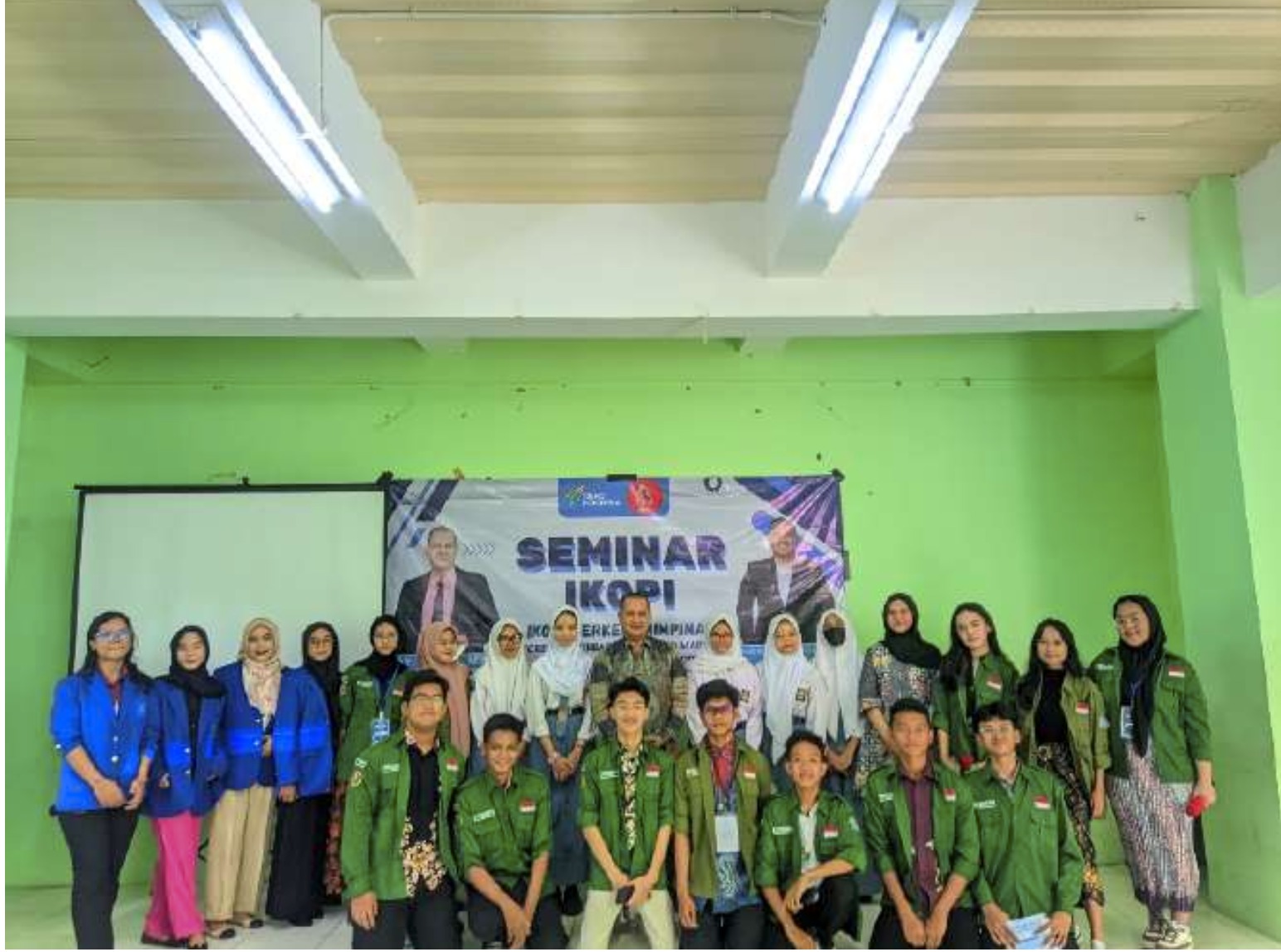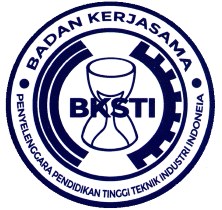Seminar "Create A Great Leader and Master Communication" As an Effort to Improve Student Communication Skills in The Digital Era
DOI:
https://doi.org/10.12928/spekta.v5i2.11207Keywords:
Seminar, Students, Communication Skills, Digital EraAbstract
Background: Communication is an ability that has a significant impact on students. Training for this activity must always be carried out.
Contribution: The purpose of this study is to explain the impact of seminar activities to improve students' abilities and skills in conducting open and effective communication patterns in the digital era that is currently taking place.
Method: The research method used in this study is descriptive qualitative. Data collection techniques carried out include observation, interviews, and documentation studies.
Result: Based on data that has been collected, the seminar that has been done is known to have a positive impact and helps students have high enthusiasm to learn about effective communication and tips for maintaining communication ethics in the digital age.
Conclusion: In addition, with the material presented, students can understand the urgency of the formation of communication skills to improve the image, confidence, as well as the responsibilities they have in the future.
References
“Asosiasi Penyelenggara Jasa Internet Indonesia.” Diakses: 10 Agustus 2024. [Daring]. Tersedia pada: https://databoks.katadata.co.id/datapublish/2023/09/20/pengguna-internet-di-indonesia-tembus-213-juta-orang-hingga-awal-2023
“Pengguna Internet di Indonesia Tembus 213 Juta Orang hingga Awal 2023 | Databoks.” Diakses: 10 Agustus 2024. [Daring]. Tersedia pada: https://databoks.katadata.co.id/datapublish/2023/09/20/pengguna-internet-di-indonesia-tembus-213-juta-orang-hingga-awal-2023
M. Escueta, A. J. Nickow, P. Oreopoulos, dan V. Quan, “Upgrading education with technology: Insights from experimental research,” Journal of Economic Literature, vol. 58, no. 4, hlm. 897–996, 2020 DOI: 10.1257/jel.20191507.
L. Jacobi, “Seeking to understand the impact of collaboration on intercultural communication apprehension,” Journal of International Students, vol. 10, no. 4, hlm. 892–911, 2020 Doi: https://doi.org/10.32674/jis.v10i3.1231.
M. Hanif, “The Development and Effectiveness of Motion Graphic Animation Videos to Improve Primary School Students’ Sciences Learning Outcomes.,” International Journal of Instruction, vol. 13, no. 3, hlm. 247–266, 2020 Doi: https://doi.org/10.29333/iji.2020.13416a.
M. Muhyatun, “Transforming Stress To Happiness: Implementation of the I-Message Technique for Establishing Positive Communication Patterns in the Family,” IJIP: Indonesian Journal of Islamic Psychology, vol. 4, no. 2, hlm. 18–35, 2022 Doi: https://doi.org/10.18326/ijip.v4i2.10.
J. E. Young dan A. D. Brenneise, “Presenting our wounds, healing the discipline: the problem of communication effectiveness,” Communication Education, vol. 72, no. 4, hlm. 423–428, Okt 2023, Doi: https://doi.org/10.1080/03634523.2023.2234516.
M. Jannah, N. A. Barlian, dan R. B. Sulistyan, “Work discipline and communication against job performance,” dalam Progress Conference, 2020, hlm. 213–218. Diakses: 27 Agustus 2024. [Daring]. Tersedia pada: http://proceedings.itbwigalumajang.ac.id/index.php/progress/article/view/311
Y. D. Hyter dan M. B. Salas-Provance, Culturally Responsive Practices in Speech, Language, and Hearing Sciences, Second Edition. Plural Publishing, 2021 https://www.pluralpublishing.com/publications/culturally-responsive-practices-in-speech-language-and-hearing-sciences.
M. Keshav, L. Julien, dan J. Miezel, “The Role of Technology in Era 5.0 in the Development of Arabic Language in the World of Education.,” JILTECH: Journal International of Lingua & Technology, vol. 1, no. 2, 2022, Doi: http://dx.doi.org/10.55849/jiltech.v1i2.85
L. Cooks, “The communicative ethics of racial identity in dialogue,” Communication Theory, vol. 31, no. 1, hlm. 22–41, 2021 Doi: https://doi.org/10.1093/ct/qtaa007
T.-L. Griffiths, J. Dickinson, dan C. J. Day, “Exploring the relationship between extracurricular activities and student self-efficacy within university,” Journal of Further and Higher Education, vol. 45, no. 9, hlm. 1294–1309, Okt 2021, doi: 10.1080/0309877X.2021.1951687. Doi: https://doi.org/10.1080/0309877X.2021.1951687.
F. Xie dan A. Derakhshan, “A conceptual review of positive teacher interpersonal communication behaviors in the instructional context,” Frontiers in psychology, vol. 12, hlm. 708490, 2021. Doi: https://doi.org/10.3389/fpsyg.2021.708490
E. D. Felix, T. D. Afifi, S. M. Horan, H. Meskunas, dan A. Garber, “Why family communication matters: the role of co-rumination and topic avoidance in understanding post-disaster mental health,” Journal of abnormal child psychology, vol. 48, no. 11, hlm. 1511–1524, 2020 https://doi.org/10.1007/s10802-020-00688-7.
P. Buckley dan P. Lee, “The impact of extra-curricular activity on the student experience,” Active Learning in Higher Education, vol. 22, no. 1, hlm. 37–48, Mar 2021, doi: 10.1177/1469787418808988 https://doi.org/10.1177/1469787418808988.
E. H. Tyas dan L. Naibaho, “Building a Culture of Tolerance since Early Childhood,” International Journal of Research-GRANTHAALAYAH, vol. 8, no. 8, hlm. 244–249, 2020.
A. P. Rahayu dan Y. Dong, “The relationship of extracurricular activities with students’ character education and influencing factors: a systematic literature review,” AL-ISHLAH: Jurnal Pendidikan, vol. 15, no. 1, hlm. 459–474, 2023 https://doi.org/10.29121/granthaalayah.v8.i8.2020.999.
T. Khot, P. Clark, M. Guerquin, P. Jansen, dan A. Sabharwal, “Qasc: A dataset for question answering via sentence composition,” dalam Proceedings of the AAAI Conference on Artificial Intelligence, 2020, hlm. 8082–8090. Doi: https://doi.org/10.1609/aaai.v34i05.6319
I. Mujahid, “Islamic orthodoxy-based character education: creating moderate Muslim in a modern pesantren in Indonesia,” Indonesian Journal of Islam and Muslim Societies, vol. 11, no. 2, hlm. 185–212, 2021 https://doi.org/10.18326/ijims.v11i2.185-212.
V. Nagarajan, D. J. Sorin, M. D. Hill, dan D. A. Wood, A primer on memory consistency and cache coherence. Springer Nature, 2020. Diakses: 27 Agustus 2024. [Daring]. https://doi.org/10.1007/s00216-021-03178-x
A. G. Cavinato, R. A. Hunter, L. S. Ott, dan J. K. Robinson, “Promoting student interaction, engagement, and success in an online environment,” Anal Bioanal Chem, vol. 413, no. 6, hlm. 1513–1520, Mar 2021, doi: 10.1007/s00216-021-03178-x.
C. Longobardi, M. Settanni, S. Lin, dan M. A. Fabris, “Student–teacher relationship quality and prosocial behaviour: The mediating role of academic achievement and a positive attitude towards school,” British Journal of Educational Psychology, vol. 91, no. 2, hlm. 547–562, 2021, doi: 10.1111/bjep.12378.
R. Fitriani, M. F. A. Untari, dan F. M. Jannah, “Implementasi Pendekatan Culturally Responsive Teaching (CRT) dalam Projek Penguatan Profil Pelajar Pancasila di Sekolah Dasar,” Jurnal Basicedu, vol. 8, no. 3, Art. no. 3, Jun 2024, doi: 10.31004/basicedu.v8i3.7529.
O. Akbari dan J. Sahibzada, “Students’ self-confidence and its impacts on their learning process,” American International Journal of Social Science Research, vol. 5, no. 1, hlm. 1–15, 2020. https://doi.org/10.46281/aijssr.v5i1.462
J. Wolfe, “Challenging the Common Wisdom of ‘I-messages’ in Conflict Management: Lessons from Female Engineers,” dalam 2018 IEEE International Professional Communication Conference (ProComm), Jul 2018, hlm. 65–66. doi: 10.1109/ProComm.2018.00022. https://doi.org/10.1109/ProComm.2018.00022
J. L. R. Muñoz dkk., “Systematic review of adaptive learning technology for learning in higher education,” Eurasian Journal of Educational Research, vol. 98, no. 98, hlm. 221–233, 2022.
D. C. Gustafson dan M. D. Haque, “Uncovering the challenges and leadership practices of virtual school principals,” Online Journal of Distance Learning Administration, vol. 23, no. 4, hlm. 1–13, 2020. https://eric.ed.gov/?id=EJ1279156
E. Lanka, A. Topakas, dan M. Patterson, “Becoming a leader: catalysts and barriers to leader identity construction,” European Journal of Work and Organizational Psychology, vol. 29, no. 3, hlm. 377–390, Mei 2020, doi: 10.1080/1359432X.2019.1706488.
A. Gamage, “Importance of effective communication to minimize disputes in construction projects,” Scholars Journal of Engineering and Technology, vol. 10, no. 7, hlm. 128–140, 2022. https://doi.org/10.36347/sjet.2022.v10i07.002
J. H. Schulze dan F. Pinkow, “Leadership for organisational adaptability: How enabling leaders create adaptive space,” Administrative Sciences, vol. 10, no. 3, hlm. 37, 2020. https://doi.org/10.3390/admsci10030037

Downloads
Published
How to Cite
Issue
Section
License
Copyright (c) 2024 Iswadi, Herinto Sidik Iriansyah, Erman Anom

This work is licensed under a Creative Commons Attribution-ShareAlike 4.0 International License.
Authors who publish with SPEKTA (Jurnal Pengabdian Kepada Masyarakat: Teknologi dan Aplikasi) agree to the following terms:
- Authors retain copyright and grant the journal the right of first publication with the work simultaneously licensed under a Creative Commons Attribution License (CC BY-SA 4.0) that allows others to share the work with an acknowledgment of the work's authorship and initial publication in this journal.
- Authors are able to enter into separate, additional contractual arrangements for the non-exclusive distribution of the journal's published version of the work (e.g., post it to an institutional repository or publish it in a book), with an acknowledgment of its initial publication in this journal.
- Authors are permitted and encouraged to post their work online (e.g., in institutional repositories or on their website) prior to and during the submission process, as it can lead to productive exchanges, as well as earlier and greater citation of published work.

This work is licensed under a Creative Commons Attribution-ShareAlike 4.0 International License.












